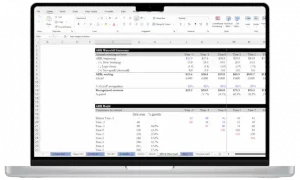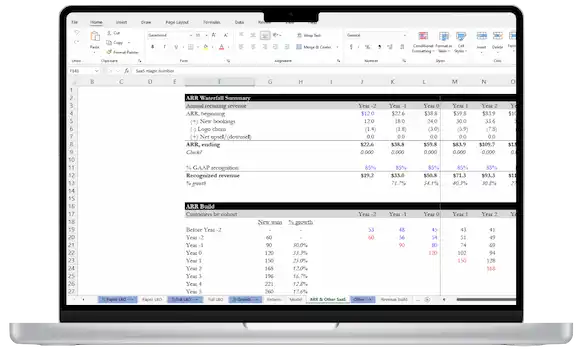So, you’re ready to join the world of private equity, huh?
Whether you’re fresh out of college or have a few years of investment banking and an MBA under your belt, you’re ready to make that jump to your dream career. You’ve created an impressive resume for yourself. Maybe you’ve even honed in on a specific industry you’re interested in.
While your skills, education, and resume are unarguably the most important factor in getting into private equity banking, the interview is the place where you get to showcase your skills, who you are, and how well you’ve prepared.
In this article, we’ll review top interview questions you can expect in private equity interviews, as well as how to answer them intelligently.
Why private equity?
The “why private equity?” question is one of the most open-ended questions, and thus one of the trickiest to answer.
Luckily for you, it’s probably not going to make or break your interview. The interviewer just wants to see if your answer “checks the box” in a few key areas.
- Have you done your homework to understand what private equity is and what it is NOT?
- Do you have an authentic reason the work appeals to you?
Popular threads to pull on in your answer include:
- Passion for investing
- Desire to be principal vs. advisor (as in banking)
- Desire to learn about finance on deeper level
- Excitement to learn about operations and work with management
- Go deeper within an industry vertical (e.g. technology private equity)
Check out my article dedicated to how to answer “why private equity” if you’d like to go deeper.
Why our private equity firm?
This question is just a pop-quiz to see if you’ve done your homework on the firm!
Too many candidates make no attempt to research the firm, and instead rely on general talking points. Don’t be one of those!
With a little research, you can easily nail this question. For instance, if the particular firm specializes in certain sizes of deals or certain industries that fascinate you, or that you have prior expertise in, this is your chance to say so.
You can tell them about your previous experience with deals that you know their firm specializes in. You can tell them about any values you hold that you know will mesh well with the firm values. You could also mention the firm’s founding story, and how it was really inspiring or the mission appeals to you. You can also draw on the size of the firm and how that appeals to what you’re looking for.
Finally, this is a great opportunity to mention folks who you’ve networked with at the firm as evidence of the assertions you’re making. (e.g. XYZ person mentioned the culture is X, and that’s what I’m looking for).
If it’s open recruiting season and are approached by a headhunter or recruiter, you may be hard pressed for time to do deep research about firms reaching out to you.
However, you don’t want to come across in the interview like “Well, I chose your firm because it was the first opportunity I got”. Doing a little research first goes a long ways towards making you appear intelligent and informed instead of desperate.
Walk me through your resume / why should we pick you?
Standard stuff for any interview.
However, given the stakes, I really advise candidates to be really thoughtful about WHY they are actually the best candidate. If you don’t know why, then think harder about your candidacy.
The reason for this is you should come up with an authentic 1 sentence pitch for WHY YOU. It’s how you’ll seek to differentiate yourself against the masses of other candidates. It’s the 1-2 you’ll want the hiring team to say about you when discussing your candidates behind closed doors.
Everyone’s answer will be unique, but possible threads to pull on include:
- Top bucket analyst at you prior role
- Straight A’s at top school
- Passion for investing
- Hustle
Once you’ve distilled this down for yourself, you should work on a crisp 1-2 sentence answer for why they should pick you. Then you can expand and/or integrate it into your walk me through your resume answer.
What’s one deal of ours that you like, and what’s one that you don’t like?
Related to the previous question, as you research the firm, you MUST research portfolio companies of the firm.
You should be prepared to understand and discuss at least one deal the firm has made that you like, and one that you don’t like, and be able to articulate the reasons why you like and don’t like them.
This shows several things about you:
- That you did your homework researching the company
- That you understand the sort of deals they work on
- That you understand what makes a good or bad investment
- That you have investing opinions and know how to communicate them
You don’t have to be an expert on the deal, as you won’t have all the private information, but you should look informed, intelligent, and somewhat opinionated.
The key to this answer is to articulate criteria for what you think makes a good deal, why you believe the deal does or doesn’t fit that criteria, and things you’d like to learn or diligence to get more confidence in that view.
Walk me through an LBO
This is where your technical knowledge can really shine.
You should be able to walk through a leveraged buyout deal, and bring your interviewer along with you. Whether it’s a theoretical discussion or a summary of an actual deal you’ve worked on, you should have two skills to get you through this.
The first is a knowledge of the steps involved in a LBO, the mental math agility to get through each step, and a deep understanding of what each number and ratio means. You’re not just trying to solve a bunch of formulas in the correct order – the interviewer wants to see that you really understand what the model means and how its dynamics work.
The second is the ability to communicate simply about complex things. It’s no good if you can picture the deal perfectly in your head.
The basic premise of an LBO is calculating the numbers for an investment to determine what your return on the deal will be over a set hold period (usually five years).
This is done by calculating the estimated exit value of the deal, and comparing it to the entry investment value.
The entry and exit investment values are calculated by multiplying some assumed valuation multiple with a financial metric of the company each respective time period (usually EBITDA).
The financial model – which is composed of a balance sheet, statement of cash flows, and debt schedule (to track the debt service and interest expense) – is used to estimate the financial metric applied to the valuation multiple in the exit value calculation. It also helps estimate the cash and debt values applied to the enterprise value to equity calculation in the exit period.
Walk me through a paper LBO
The paper LBO is a simplified version of a full LBO calculation. If you’re asked to walk through a paper LBO, usually this will take ~10-20 minutes and you’ll be expected to do it without the use of a calculator, Excel, or other electronic tools.
The deal is simplified through a number of assumptions to allow for quick calculation without compromising the deal structure or level of understanding.
- Numbers are rounded to the nearest $5 million
- Company growth is assumed to be linear
- The only figures you have to construct are EBITDA and free cash flow for each year. Numbers from the balance sheet and statement of debt service are not expected.
Depending on the position level you are applying for, you may have added complexity added to the presentation, like one-time debt principal payments during the deal period.
The end result of a paper LBO is to find an approximate end value of a deal after a given length of time, usually five years. You are given a beginning set of information about the proposed deal, including:
- Beginning revenue (year 0)
- Revenue growth rate assumption
- EBITDA margin
- Entry multiple
- Proforma debt mix, amounts, and interest rate
- D&A
- Yearly capital expenditures
- Tax rate
- Length of time between entry and exit (usually 5 years)
I have a separate article that covers the paper LBO in depth, since this can be one of the most intimidating parts of the private equity interview process for candidates.
What makes a good LBO target?
While every investment is different, typically a good LBO target has the following characteristics:
- Strong free cash flow – this is important for being able to support (and pay down) high amounts of debt
- Strong & stable track record – for banks to agree to lend to a company, it should have a strong track record of execution and relatively steady financial performance (no huge variations in profitability or growth)
- Strong management teams – Ideally the target would have a strong team of operators running the business; however, this is not always a requirement, since many firms specialize in replacing management teams after they buy the business
- Opportunity for operating or expense efficiencies – Many LBO investors look for targets that they can add value to by improving the operations or reducing the costs
- Viable exit strategies – There should be viable paths to IPO or sell the business after the hold period
Why do investors use EBITDA instead of Price/Earnings multiple?
EBITDA as a metric provides a cleaner way of looking at profitability because it excludes the impact of capital structure.
That is, if a company has a high debt burden it would likely have high interest expense. This would lower its net income, since it would have high expenses from interest.
Meanwhile, if that same company magically paid down all its debt, the profitability of the business would be much higher.
Further, EBITDA is sometimes a better estimate of free cash flow. That’s because the depreciation, amortization, interest, and tax expenses – all of which are included in net income, but are excluded from EBITDA – can be non-cash.
Technical private equity interview questions
While this isn’t by any means a comprehensive list of questions you can expect during a PE interview, below I’ve included even more technical questions to give you a feel for what interviewers are looking for:
What’s a stock you like?
You should come prepared to discuss (and possibly defend) a stock that you like.
Ideally, it should be a stock in a company that would also make a good LBO target. This shows both your knowledge of investing and your potential value to the PE firm. Essentially, you’re pitching a stock to the firm.
While you could be asked to create a formal stock pitch as part of a case study, very often this question is framed as a more casual conversation between you and the interviewer.
This may sound less intimidating, but it really involves the same amount of preparation on your part. The structure will be more back-and-forth, but you will still have to have all the company’s information, and your reasoning about a potential deal, at the tip of your tongue.
For more, check out my article on how to create a stock pitch.
What credit metrics are most important in evaluating the feasibility of an LBO?
The level of interest rates, the risks lenders are willing to take, and the overall strength of the market all play into which company credit metrics lenders will look at.
That said, typical metrics used to evaluate LBO feasibility are:
- Total Debt/EBITDA
- Senior Debt/EBITDA
- Net Debt/EBITDA
- EBITDA/Interest Expense
- (EBITDA – CapEx)/Interest Expense
How does the current macroeconomic environment affect the LBO market?
Again, the answer to this question will vary with the times. If interest rates are way up, high interest rates means less eager lenders, and vice versa. High interest rates also mean that LBOs will have lower returns for investors because it will increase the interest expense due from the debt taken out in LBO.
If the interest rates rise so high that GDP growth slows or shrinks, you need to understand how low economic demand could impact the revenue of LBO’d companies. A recession or depression means less new business being created, which in turn leads to lower economic growth, less money circulating through the market, and less new investing and lending activity.
On the other hand, periods of high GDP growth mean more new businesses, more new investments, lower cost of money, and a more active LBO market.
How can one increase returns in an LBO?
Below is a list of potential levers that PE investors can use to improve returns in LBOs:
Debt refinancing: Since LBO deals rely heavily on debt, refinancing at even a slightly lower interest rate can make a huge difference in the overall profitability of the deal.
Dividend recapitalization: Depending on how leveraged the company already is, it may or may not be able to take on new debt. If it can, you can send the proceeds from the new debt straight to the owners by paying a dividend. This can be a good strategy if you can get a good interest rate, and if the company and overall market are low-risk enough to sustain a higher debt load.
Cost-cutting and operational improvements: These can make obvious bottom-line improvements to earnings in the short- and long-term. The obvious caveat is making sure cuts are sustainable and will not emperil revenue lines of the business.
Improve management team: Good management can make all the difference to a company’s success. This may or may not be an option, depending on how much of the company the private equity firm can control. Under the right circumstances, however, it can make all the difference for a struggling investment.
Acquire other companies: Acquiring related companies, whether you merge them or not, can create efficiencies of scale for all the companies involved. Again, this may be an option if you can get new financing for the deal. The companies have to be financially compatible, and be able to create synergy with each other to raise their collective value.
New growth initiatives: Growth doesn’t have to be external. Internal growth might include new departments, adding new products and services or taking away unprofitable ones, and more. This isn’t as common for heavily leveraged companies, as LBO companies tend to focus on mature companies with stable operations but relatively dim organic growth prospects.
What are popular exits for private equity investments?
The IPO isn’t necessarily the pot of gold at the end of the rainbow. This is definitely one exit option for a PE company, but there are a couple other options:
M&A exit: This would involve selling the company to another company for a merger. It may even be to a new PE firm interested at taking the company on at the next level of growth. Depending on market conditions and interest rates, this may be easy or more difficult to pull off – you need to have a competent, interested buyer to make this option possible.
Dividend recapitalization: This isn’t exactly an exit, as it doesn’t involve a sale. But it does improve returns as owners are paid out proceeds from new debt financing.

- 66 lessons
- 12+ video hours
- Excels & templates
Behavioral interview questions
These don’t get as much attention – they’re the standard questions you’re likely to get in any interview. Some might be:
- How would you handle X situation?
- Tell me about a leadership experience.
- Tell me about a time you failed.
- Why private equity? We already covered this question pretty thoroughly as it relates to private equity vs. investment banking. Variations of this question might include why private equity as opposed to other subsets of banking, like hedge fund, venture capital, growth equity, etc.
Do you have any questions for me?
Typically, in the last five minutes of the interview, your interviewer will turn the tables and allow you to ask him or her questions.
If you’ve done your research thoroughly, you probably have some questions about the company.
I advise you ask about things you CANNOT find on the company’s website – the company’s culture outside the boilerplate company values, the interviewer’s personal experience with the firm, or what common advancement paths look like.
If you know ahead of time who your interviewer might be, don’t be afraid to look them up on LinkedIn to get ideas for questions with a personal touch. After all, they’re doing it to you.
If you spoke to several different people over the phone, via email or LinkedIn, and in person, you can leverage this to your advantage. If one person mentions something and you’re curious to learn more, ask. Say, “When I spoke to X, she said something about ___. Can you tell me more about that?”
Next steps
Private equity interviews can be some of the most demanding and draining in any field.
Go forth and prep as much as possible! It really is true that practice makes perfect in this game.


 Break Into Growth Equity
Break Into Growth Equity

